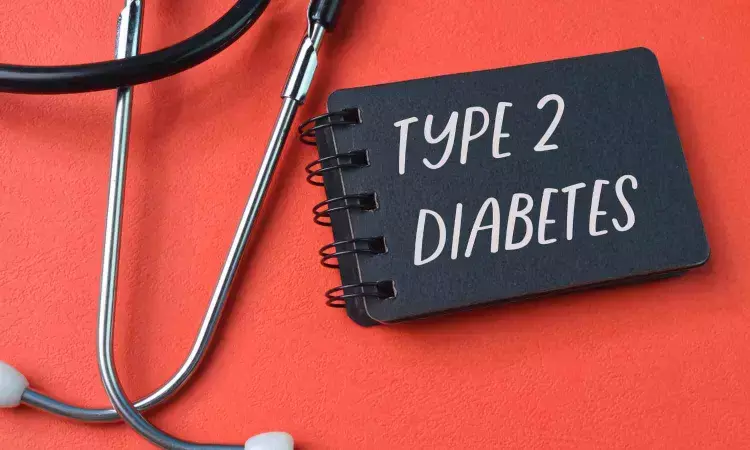- Home
- Medical news & Guidelines
- Anesthesiology
- Cardiology and CTVS
- Critical Care
- Dentistry
- Dermatology
- Diabetes and Endocrinology
- ENT
- Gastroenterology
- Medicine
- Nephrology
- Neurology
- Obstretics-Gynaecology
- Oncology
- Ophthalmology
- Orthopaedics
- Pediatrics-Neonatology
- Psychiatry
- Pulmonology
- Radiology
- Surgery
- Urology
- Laboratory Medicine
- Diet
- Nursing
- Paramedical
- Physiotherapy
- Health news
- Fact Check
- Bone Health Fact Check
- Brain Health Fact Check
- Cancer Related Fact Check
- Child Care Fact Check
- Dental and oral health fact check
- Diabetes and metabolic health fact check
- Diet and Nutrition Fact Check
- Eye and ENT Care Fact Check
- Fitness fact check
- Gut health fact check
- Heart health fact check
- Kidney health fact check
- Medical education fact check
- Men's health fact check
- Respiratory fact check
- Skin and hair care fact check
- Vaccine and Immunization fact check
- Women's health fact check
- AYUSH
- State News
- Andaman and Nicobar Islands
- Andhra Pradesh
- Arunachal Pradesh
- Assam
- Bihar
- Chandigarh
- Chattisgarh
- Dadra and Nagar Haveli
- Daman and Diu
- Delhi
- Goa
- Gujarat
- Haryana
- Himachal Pradesh
- Jammu & Kashmir
- Jharkhand
- Karnataka
- Kerala
- Ladakh
- Lakshadweep
- Madhya Pradesh
- Maharashtra
- Manipur
- Meghalaya
- Mizoram
- Nagaland
- Odisha
- Puducherry
- Punjab
- Rajasthan
- Sikkim
- Tamil Nadu
- Telangana
- Tripura
- Uttar Pradesh
- Uttrakhand
- West Bengal
- Medical Education
- Industry
Melatonin Supplementation Improves Glycemic Control in Type 2 Diabetes, Research Finds

Iran: A recent systematic review and meta-analysis have highlighted the potential benefits of melatonin supplementation for individuals with Type 2 diabetes, revealing that it may improve glycemic control.
The findings, published in Current Pharmaceutical Design, indicate that patients with Type 2 diabetes who were supplemented with melatonin experienced significant improvements in their glycemic control. Notably, supplementing with melatonin at doses exceeding 6 mg daily for over 12 weeks appears to be more effective than other forms of intervention.
Melatonin, a hormone primarily produced by the pineal gland, is known for regulating sleep-wake cycles. However, it also has antioxidant properties and influences insulin sensitivity, making it a topic of interest in diabetes research.
Several previous studies have suggested that melatonin supplementation may positively affect glycemic control in patients with diabetes. However, the research regarding the effects of melatonin on glycemic parameters remains inconclusive. Therefore, Reza Nejad Shahrokh Abadi, Mashhad University of Medical Sciences, Mashhad, Iran, and colleagues sought to evaluate the effects of melatonin supplementation on glycemic parameters in individuals with Type 2 diabetes through a meta-analysis.
For this purpose, the researchers conducted a comprehensive search of PubMed/Medline, Scopus, and Web of Science until July 2024 to identify eligible randomized clinical trials (RCTs). They estimated overall effect sizes using a random-effects model, presenting the results as weighted mean differences (WMD). Additionally, the heterogeneity among the included trials was evaluated using the Cochran Q test, with interpretations based on the I² statistic.
The research revealed the following findings:
- Out of 1,361 papers reviewed, eight eligible RCTs were included in this meta-analysis.
- The results revealed that melatonin supplementation significantly reduced fasting blood glucose (WMD = -12.65 mg/dl), insulin levels (WMD = -2.30 μU/ml), hemoglobin A1c (WMD = -0.79%), and HOMA-IR (WMD = -0.83).
This systematic review and meta-analysis indicate that melatonin supplementation may provide significant benefits for glycemic control in individuals with Type 2 diabetes, especially at higher doses and over longer durations.
"As awareness of personalized treatment strategies in diabetes care increases, melatonin could become a valuable adjunct therapy. However, further research involving larger sample sizes is essential to establish definitive conclusions," the researchers concluded.
Reference:
Abadi, Reza Nejad Shahrokh, et al. "Impact of Melatonin Supplementation On Glycemic Parameters in Patients With Type 2 Diabetes: a Systematic Review and Meta-analysis." Current Pharmaceutical Design, 2024.
Dr Kamal Kant Kohli-MBBS, DTCD- a chest specialist with more than 30 years of practice and a flair for writing clinical articles, Dr Kamal Kant Kohli joined Medical Dialogues as a Chief Editor of Medical News. Besides writing articles, as an editor, he proofreads and verifies all the medical content published on Medical Dialogues including those coming from journals, studies,medical conferences,guidelines etc. Email: drkohli@medicaldialogues.in. Contact no. 011-43720751


